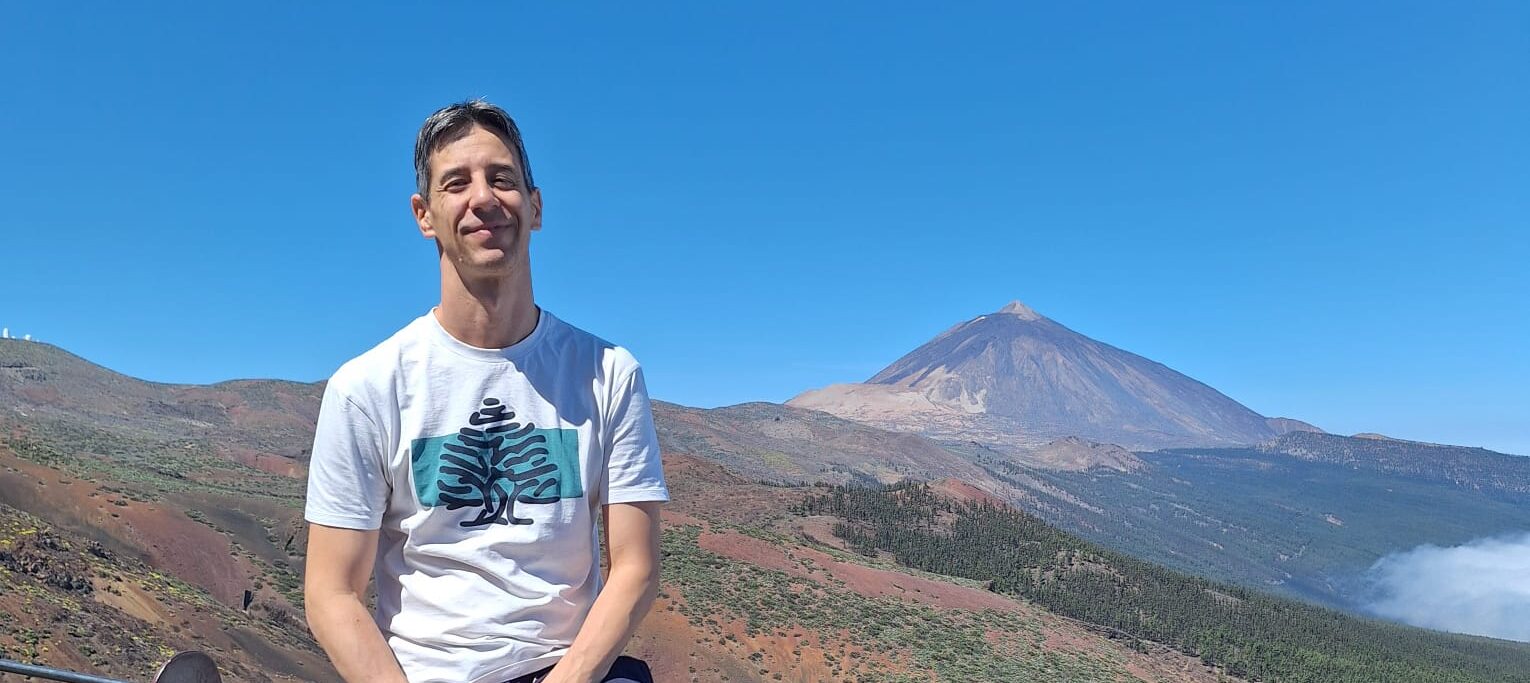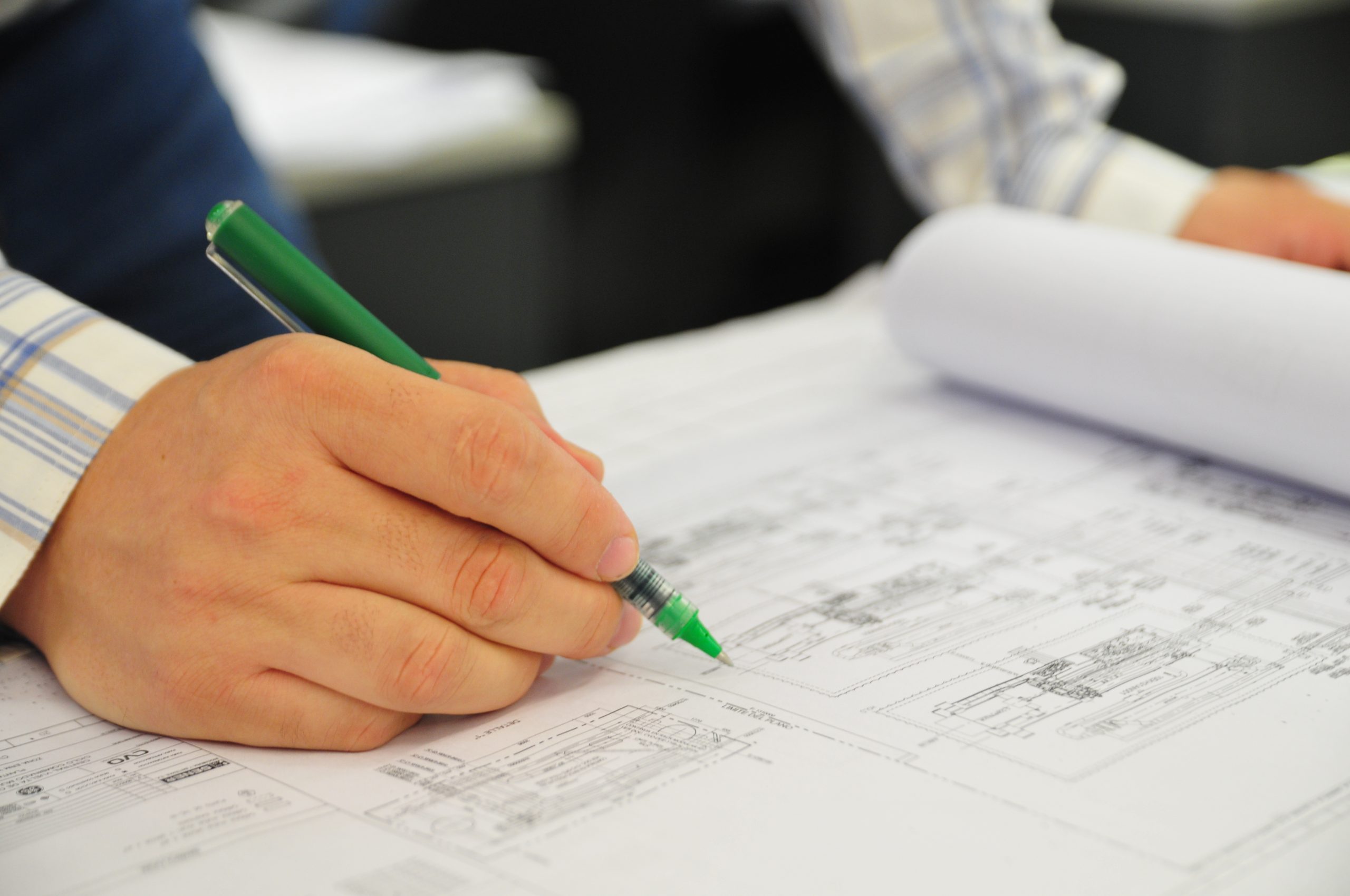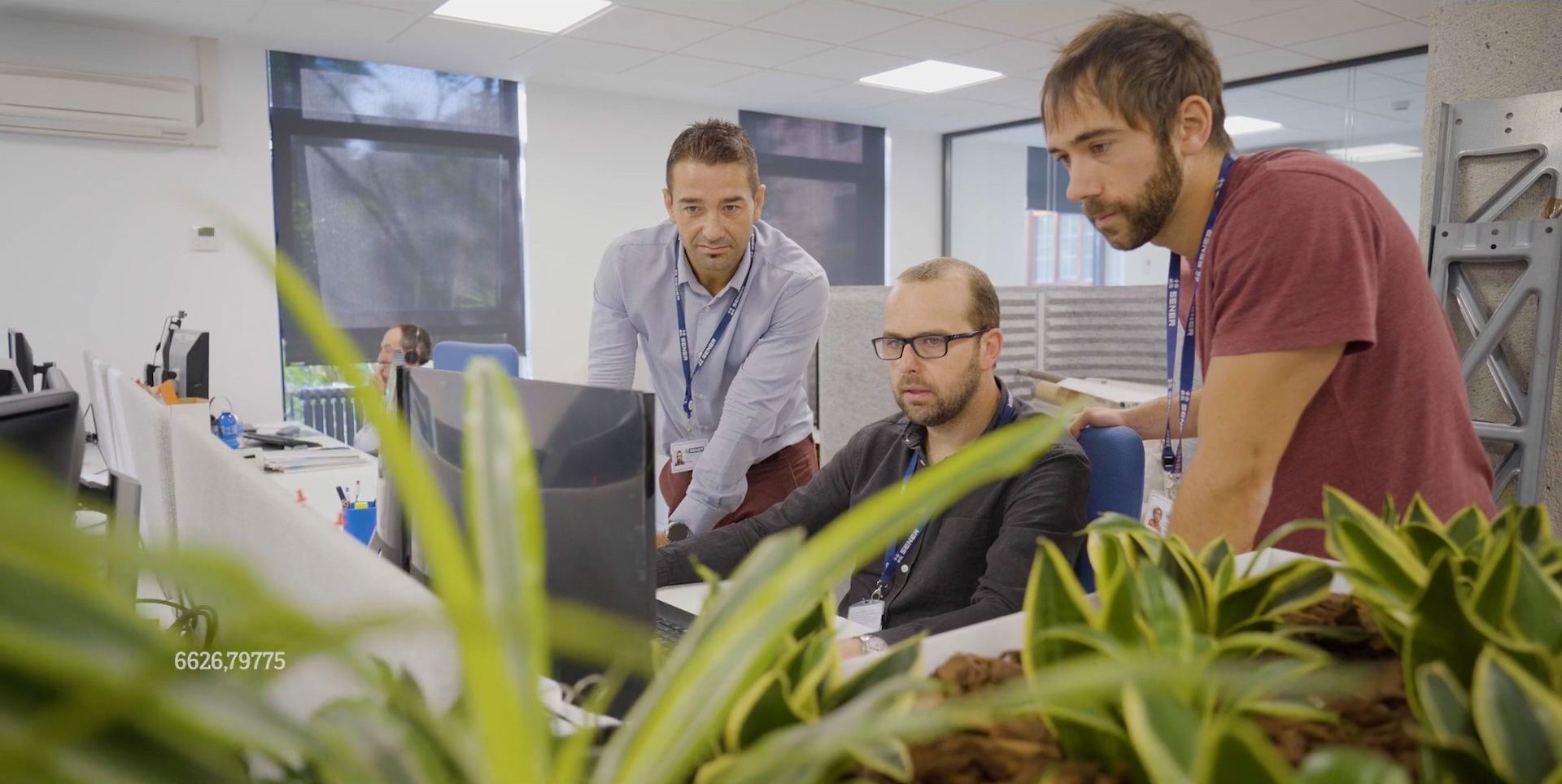
- The mind behind the project
Categories:
What inspired you to pursue a career in engineering?
Since I was a child, I have always been very curious about how things work and what was happening around me. In secondary school, I was already leaning much more towards the scientific field, and at the end of this stage, I was torn between the world of physics and engineering. I finally decided on engineering because, in addition to my curiosity to understand, I was excited that they could teach me how to create things.
In my case, I leaned towards industrial engineering because it is a speciality that opens up many different fields, although it does not have such a high degree of specialisation. As one of my teachers used to say, ‘industrial engineers are like ducks: we walk, swim and fly, although we are not the best at anything,’ which is something I can relate to.
How did you join Sener?
My first contact was almost artisanal, a scholarship offer posted on the school notice board, on paper, which I applied for without knowing anything about Sener but intrigued by the job, which seemed very interesting: developing a control system for a fuel cell-based APU system. Later, José Ramón Villa, my boss for many years, gave a talk at the school and we got to know each other. He invited me to an interview and since then…
What business area do you belong to and what do you do? What is your day-to-day life like?
Recently (just a month ago), I was appointed head of the Autonomous Vehicle Systems Area within the Avionics and Advanced Systems Division at Sener Aerospace, a position I combine with coordinating the Applied Artificial Intelligence discipline at Sener Aerospace and being a member of the AI Lab coordination group.
For those who want to know more about the work of an area manager, I am sorry to say that I cannot contribute much at this time because I am still in the learning process. But I feel a great responsibility and rather thrilled, because even at the risk of using a well-worn phrase, people are Sener’s greatest asset, and this role focuses on helping people give their best every day.
I will be combining this responsibility with my contribution to Sener Aerospace’s Applied Artificial Intelligence discipline and my contribution to the AI Lab, where I have been working for a few years, mainly contributing to the launch, team coordination and collaboration with other areas of the company, and identification of needs. It is a very enriching activity, as it allows me to learn new things every day and meet more people. In any case, it would not be possible to combine it with my other responsibilities if it were not for the people who make up the work teams.
We, industrial engineers, are like ducks: we walk, swim and fly!
What has been your progression since you joined Sener?
As I mentioned before, my first experience at Sener was with a scholarship in the Control Section of the Aerospace Division of Sener Ingeniería for the development of a control system for an APU (Auxiliary Power Unit) demonstrator based on a PEM fuel cell, which was also the basis for my final degree project. I then had the opportunity to join the staff. For several years, I worked as an engineer and then as a development manager in the field of hydrogen and fuel cells, exploring opportunities with AIRBUS, NAVANTIA and other companies.
After a few years, I started working on the heliostat control system at the GEMASOLAR plant and from there moved on to the development of robotic cleaning systems for solar thermal plants: PARIS and HECTOR. I participated in these projects as a development, integration and testing engineer, having the opportunity to work from the conception of the idea based on user needs to the CE marking phase, gaining a lot of personal experience and spending hours of field testing with incredible professionals.
My next professional step involved participating in the design of the radio frequency antenna pointing system for the Solar Orbiter and JUICE satellites. My job consisted of supporting the design of simulators and control algorithms and providing support during the testing phase. I had the opportunity to learn about the space business and learn a lot from people with extensive experience.
Before reaching my current position, I spent the last few years working in the field of terrestrial navigation systems, where we launched the Naviground concept as a navigation solution for terrestrial platforms. You could say that this is a professional phase in which I have been able to contribute the lessons learned from my previous development experiences, which, together with an incredible team of people, have collaborated in creating a product prototype from basic R&D where even the end user did not have a clear idea of the need. My role has been to coordinate the team, develop offers, support business development in the search for opportunities, and establish relationships with customers and partners.
In between, I have been able to participate in promoting the use of Artificial Intelligence, collaborating with the Sener Foundation on very enjoyable and high-impact projects such as Un Reto por la Ciencia (A Challenge for Science), CARE-AI and Sener’s Bot Talent.
The very nature of the projects, full of technological challenges, forces you to devote time to never stop learning.
How do you think the projects you work on influence the world or society today and in the future?
One of the things that greatly influences my motivation, as it does for many people, is seeing that the effort we put into each project adds value. Sener’s purpose sums up this spirit of working on projects that contribute to development by tackling challenges that force us to seek new or unique solutions. In addition to being fortunate enough to work on these types of projects, it is wonderful to be surrounded by colleagues from different cultures and countries who share this motivation.
How do you keep up to date with general knowledge and trends in your sector?
It’s a complex and pertinent question. In this era where information is increasingly accessible: from the incredible amount of information available on the internet, to specialised social networks and, of course, generative AI, to the point where one could say that there is so much that it is impossible to process or delve into. Fortunately, the very nature of the projects, which are full of technological challenges, already forces you to devote time to never stop learning. On the other hand, we have a work environment with many highly skilled people from whom it is very easy to learn. I always say that training is important and reading and taking courses is beneficial, but one should not underestimate a good conversation with a colleague.
At our AI Lab, I face the challenge to promote a responsible use of Artificial Intelligence.
In your opinion, what distinguishes Sener from its competitors?
I have spent almost my entire professional career at Sener, but I have been fortunate enough to meet many people with diverse experiences at Sener and other companies in the sector. From that experience, I believe that there is no such thing as the perfect company for everyone; the identity of the company and the character of the people must converge.
In my particular case at Sener, as I mentioned earlier in the summary of my career at Sener, I have encountered different fields of engineering and constant technological challenges within those fields, approached from multiple roles that have motivated me professionally and helped me to grow.
Beyond purely professional development, at Sener I have identified with the company’s values, I have felt recognised for my successes and supported in my mistakes by my managers, and, something that is very important to me, I have been able to balance my professional and family life thanks to work-life balance measures.
What new challenges do you see yourself working on in the medium term?
Right now, I am experiencing both excitement and trepidation about my new challenge as head of the Autonomous Vehicle Systems Department, an area where significant growth and many challenges are expected. I would love to have this conversation again in a few years and say that I learned quickly, made few mistakes, and was able to help the team. In the meantime, I am trying to learn as much as possible from experienced people.
In addition, I face the challenge to promote a responsible use of Artificial Intelligence, focused on specific problems and measurable results.








